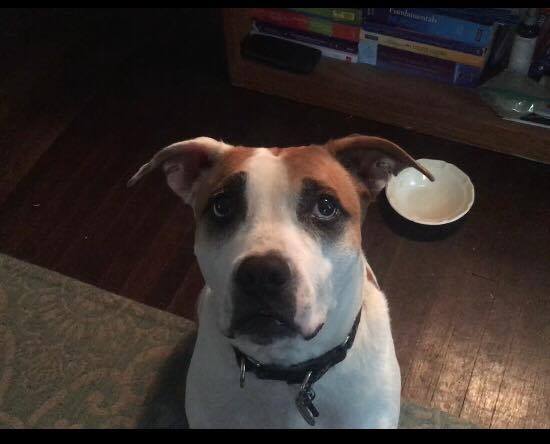![]()
Setting emotional boundaries is a difficult practice.
This is true even before you factor in empathic tendencies.
If we aren’t steadfast with our boundaries, we may find ourselves inundated with other people’s emotional baggage.
And if we don’t know any better, we may really find ourselves drowning in the energetic weight of their sh*t, that in actuality has nothing to do with us.
As an empath, this whole cycle and dance of whose emotions are whose is a constant part of my life.
And not only do I feel everything, I want to fix everything for everyone.
From my earliest memories, I did not understand anything about life. I did not understand anything about emotions. I did not understand anything about communication. I felt as though everyone else had been given a manual on how to live life, and I never got it. I was just confused.
I never knew, until 35 years later, that I could have asked. Seriously, I could not comprehend why everyone else did not understand that I felt like I was drowning in a sea of overwhelming emotion—since I could read the emotion of a room from outside. I didn’t know this was what I was doing on a conscious level, but I knew what everyone was feeling all the time.
I thought everyone went through life this way. But no one was reading me. Why couldn’t anyone read me? This created such a frustration within because I felt like screaming at people when they asked, “What’s wrong?” I spent 30 years thinking that everyone was supposed to just know what I was feeling because I knew what they were feeling.
Talk about a setup for misery!
I did not know what an empath was. I was not aware that the overwhelming tornado of emotions that I felt everyday was not even mine! There was no one to explain that a feeling was not a fact, and that I did not have to drown in them. I was not aware that I did not have to take ownership of emotions, mine or not.
Who knew you could acknowledge them and send them on? Who knew that emotions did not have to engulf you? I sure didn’t. As I began to do some inner work, I began to see that I had been living my life carrying around emotional stuff that wasn’t even mine!
As an empathic child with no tools for communication or coping, I wasn’t equipped to decipher the maze of emotions flowing inside me. I found that I had been running storylines inside my mental belief system that told me things I had never been told as a child. What I discovered was that I had been running my father’s inner monologue on top of my own. I had empathically picked up on his unhealed emotional traumas and carried them into my 30s.
I kept plowing through the inner chaos that I hadn’t looked at in years. I was blown away when I came to see that I had in fact been playing out my life according to the emotional baggage of others. Needless to say, when I came to see this, I immediately launched on a new course of living; one where I was no longer going to be the prisoner of that which was not mine, which brings me to my tips for not taking on other people’s sh*t.
- In essence, the first thing to do is clean our emotional house. This was the most freeing process for me. It wasn’t pretty nor cute. It was messy and dirty, with lots of journaling, writing, tears, anger and surprise. Look through every belief and story you carry around and if it isn’t yours, or you’ve outgrown it, throw it away. If it tries to come back, thank it gently and say, “No, you no longer serve me.” These words will feel so uncomfortable at first, but you’ve got to practice. One by one, go through and examine all the story lines you tell yourself and examine where they came from.
- Next, once we’ve gotten in there and let go of the baggage we’ve been carrying, we need to find a breathwork or meditation practice. This will be the most powerful tool when it comes to passively observing what is happening at any moment without emotionally engaging.
- Ditch the guilt mantra. Hopefully this got thrown out in the emotional spring cleaning, but the guilt mantra is a tough one because it is ingrained in us to be compliant in society. Normal people feel guilty saying no, so as an empath it’s even more challenging for us. Replace the guilt mantra when something isn’t in your best interest, or someone is trying to dump their sh* all over you. Try using, “I am not responsible for the emotions of others.”
- Notice your emotions each day. Begin paying attention to them with mindfulness. See where they go and which of them are actually related to your own sh*t and which belong to those around you. Send the stuff that isn’t yours down into Mother Earth, so she can transmute it and send it back to its owner as neutral energy.
- Smudge, and smudge a lot! I smudge myself first thing in the morning, when I get to work, and when I get home from work. And any other time I feel I need it. White sage cleanses our energetic body, and when we are free from the clouds of rampant emotions flying all over the place, we can see what’s ours.
- Incorporate a practice of pausing and taking a deep breath as soon as you feel anything creeping up in your emotional or mental space. This breath brings us to the moment and in that moment we can decide whether or not the creeping feeling is even ours. Then take another deep cleansing breath.
- Mantras are an empath’s best friend. Use these on a daily basis until you believe them, or make up your own that resonate with you:
Not my circus, not my monkeys.
I am not responsible for anyone else’s emotional well-being. (Unless of course you’re raising children, teach them well.)
I surround myself in protective white light where nothing that isn’t mine can weigh me down.
Only my emotions are my responsibility.
Their response says more about them than it does about me.
I can reman open to the world without taking on other people’s sh*t. - Finally, we can do a deep Solar Plexus chakra cleaning and protection meditation. This chakra is our emotional doorway. That’s why we feel emotions in our stomach. So if you’re really feeling overwhelmed and can’t place the source, but you’re sure it’s not your own, try physically covering your Solar Plexus chakras with your hands or anything else. This physical block can really help in the beginning until we strengthen those boundary muscles.
The most important thing of all is awareness. Bringing awareness to the fact that we take on the emotions of others can be an empowering step toward emotional freedom. Because if we won’t admit something, we cannot change it.
It’s a challenging practice to hold fast to our emotional boundaries as empaths because we feel it when someone is upset at us because we said no. But you know what? It’s not our problem. Their reaction to our boundaries is their responsibility. And I still have to use a mantra when this occurs. We can’t undo decades of programming overnight.
So be gentle with yourself, but firm. Allow yourself room to grow and expand into your best self.
(And if you really want to practice saying no and sticking to it, do what I do. Get a really big dog with big sad eyes who thinks he can fit in your lap, and practice maintaining boundaries with them. Because if we can hold fast in the face of cuteness, we can do it anywhere.)

May it be of benefit to those who need it. I would love to hear your tips for keeping your emotional space clear in the comments below!
~
~Author: Lindsay Carricarte
Image: Instagram/Gypsie Raleigh, author’s own
Editor: Travis May


 Share on bsky
Share on bsky




Read 16 comments and reply